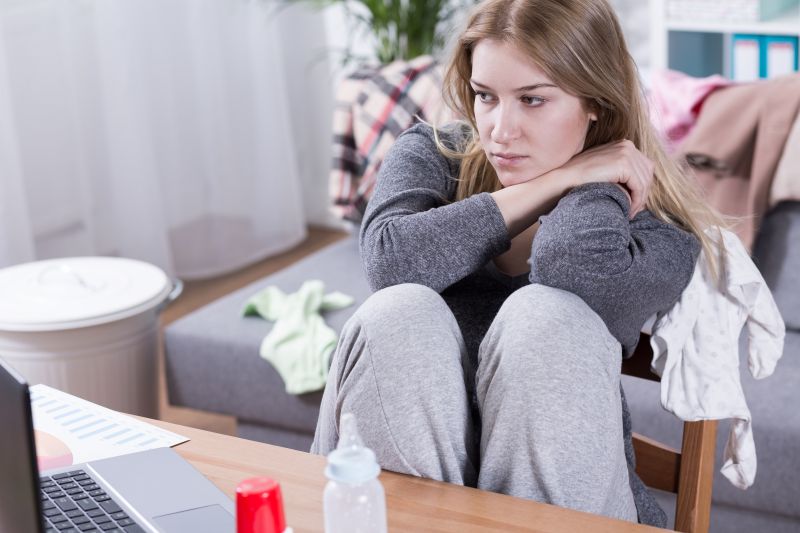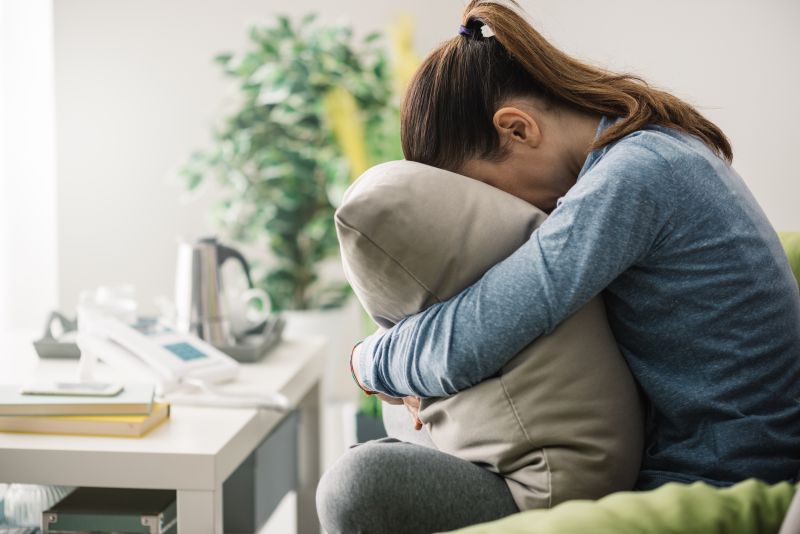Hormone changes that occur after birth may lead to certain mental conditions that most first-time moms wouldn’t even dream of. Instead of being happy from the new arrival to the family, they may feel sad, overly emotional or become easily angered. This is what we call baby blues.
Baby blues is something that affects approximately 75% or all women after birth. Zuzana was one of them, too. While she was pregnant, she was looking forward to her new baby. She imagined how she would go on walks in the autumn sun with her little one in a stroller. Once the baby arrived, however, all of these happy fantasies vanished. Instead, she felt moody, sad and exhausted which eventually lead to a loss of appetite. About a week after giving birth, she felt as if she were the worst mother in the world and even began doubting her decision to have a baby in the first place. Luckily, these feelings vanished after two weeks.

Postpartum Depression Treatment
Baby blues usually appear within the first week after giving birth and they often vanish naturally within a few days’ time. They should be completely gone after two weeks. However, in 5% to 20% of all women, baby blues can lead to postpartum depression (also called postnatal depression). The psychological problems women often face after giving birth used to be a taboo topic that gynecologists didn’t want to deal with. Nowadays, we have so-called postpartum depression treatment which is performed by specialists who understand not only women’s bodies but also their souls. This treatment was established in the U.S. in the 80’s.
Symptoms of baby blues:
- frequent crying,
- hypersensitivity,
- sadness,
- mood swings,
- exhaustion,
- inability to sleep,
- loss of appetite,
- feeling like you’re a bad mother.

When baby blues don’t go away
The first signs of postpartum depression (PPD) are the same as with baby blues. The difference is that PPD symptoms don’t vanish withing 2 weeks’ time as baby blues normally would. The feelings of hopelessness and despair can gradually grow and lead to thoughts of suicide. According to experts, it’s very important for mothers to speak about their feelings with the people around them, be it their partner, parents or friends. Seeking the help of a doctor is nothing to be ashamed of. Establishing a feeling of happiness in the household is also a part of PPD treatment. Every mom should find the time for herself and her hobbies.
The selfless mother image
According to Lívia, an emotional coach, there are certain stereotypes associated with motherhood.
“Many women think of a stereotypical image of a ‘supermom‘. It’s the mother who does everything on time, her house is always cleaned and she always has a fresh meal cooked. She spends all day with the kids and, in the evening, she welcomes her husband home after a hard day at work. It’s a very old-fashioned image of a ‘selfless mother’ who puts her family above all else, usually above herself. But, in reality, even this ‘supermom’ begins feeling tired and unhappy after a while and she usually doesn’t know why. The reason is actually very simple. She forgot about herself,” Lívia says.

Fighting against baby blues and PPD
With postpartum depression, finding expert help is essential. You can also take some small steps by yourself. Healthy food is the key because it helps maintain a steady blood sugar level. Sleep also stabilizes emotions. If you’re feeling exhausted, have a short nap. Don’t feel bad about accepting help, for example with homework.
Try to get a lot of fresh air. Take your baby out in a stroller and enjoy some movement and some sun. It will increase your serotonin levels which will then better your mood. Having a baby doesn’t mean that your social life has to turn around 180 degrees. It’s important to meet with your friends and talk to them about your feelings. A short break from your daily routine will also help better your mood. Go get yourself some new clothes or take a hot bubble bath, just remember to do something you enjoy.